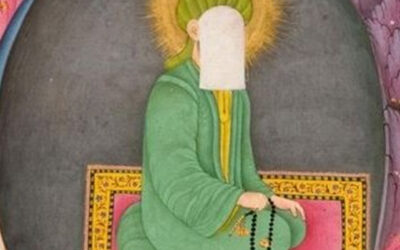The Lebanese Hatikvah

Many people are unaware that Theodor Herzl, the founder of the Zionist movement, was not driven by a nostalgic longing for Jerusalem, as had been the case for Jews over the past two thousand years. Instead, he was motivated by the urgent need to establish a state that would ensure the survival of the Jewish people and secure the future of subsequent generations.
The racism and persecution Jews faced since being expelled from Jerusalem in the first century CE is a long and painful history, marked by forced conversions, massacres, and displacements. From the Middle Ages to the 20th century, Jews were seen as “the other” — impure and unworthy — by the Christian majority and later by the Nazis, who sought to eliminate them.
Faced with this systematic persecution, Jewish communities tried to assimilate by adopting the cultures, attitudes, and values of their surrounding societies, hoping that the majority would accept them as part of their community. Yet even those Jews who abandoned their faith and converted to Christianity were not spared from the brutalities of the Spanish Inquisition. During the Enlightenment, Jewish leaders like Moses Mendelssohn advocated for integration into European culture, encouraging Jews to adopt European languages, customs, and traditions while maintaining their faith. However, despite the secularization of Jewish communities, the dream of acceptance remained elusive. The Dreyfus Affair in France, a country considered a beacon of enlightenment, exposed the depth of antisemitism. In Russia, pogroms were carried out with the implicit agreement of the authorities, resulting in the deaths of thousands of Jews and the displacement of countless others.
By the late 19th century, Herzl and other Jewish figures had become convinced that efforts to integrate would not suffice to protect Jews, just as the attempts by Rabbi Yohanan ben Zakkai had failed to shield the Jews from Roman tyranny, or Joseph, son of Rabbi Samuel HaNagid, had failed to protect the Jews of Granada from the massacre of 1066. Neither the advice of Rabbi Isaac Arama to outwardly conform to Christian norms nor the progressive ideas of Moses Mendelssohn had saved European Jewry. Herzl’s solution was to establish a national homeland for Jews, a place where they could freely determine their own destiny — where the devout Jew could live without fear, and the secular Jew could live freely, not out of fear but by choice.
The declaration of the State of Israel in the same decade that saw the Nazis execute millions of Jews in Europe stands as a testament that Israel is the solution — the solution that guarantees protection, freedom, and a future for the Jewish people in a world that has long been, and continues to be, full of antisemitism and hatred of Jews. While Israel represents the religious solution for which Jews wept by the rivers of Babylon, the motivation for establishing the state was not solely driven by religious narrative but by existential necessity.
The Christian Israel
The Jewish story has found its happy ending, without a doubt. But there is another story unfolding for Christians in the Arab world. Christians in the Middle East are indigenous citizens who have been in the region long before Islam. However, centuries of Islamic rule have subjected Christians to varying degrees of persecution and displacement — a reality that persists to this day.
Today, Christians in Arab countries find themselves in a situation similar to that of Jews during their attempts at integration, adopting the values and norms of the majority in the hope of gaining acceptance and protecting themselves from persecution. Some Arab countries have become almost devoid of Christians due to systematic persecution by either the authorities or Islamic groups, with governments turning a blind eye to avoid confrontation. In Egypt, Christian girls are kidnapped and forcibly married to Muslims under the watchful eyes of the state, with silence from families and the church. In Jordan, which is considered one of the best Arab countries for protecting Christians, Christians are prohibited from placing statues of Christ or the Virgin Mary in visible locations, even in predominantly Christian cities like Fuheis. The church is forbidden to baptize Muslims, and Christian theological colleges cannot accept Muslim students, while converting Christians to Islam is legal and permissible under the constitution. Churches are also required to regularly issue statements condemning Israel and the West to avoid accusations of Zionism and betrayal. In Syria, the word “Israel” is forbidden during Bible readings and must be replaced with “the ancient people.” In the West Bank, several churches have been burned by Islamic groups, and Christians in the land of Christ are silenced and driven to emigrate, leaving only a few thousand remaining.
Amidst this systematic persecution and displacement, all attempts by Christians to integrate into Islamic culture by mimicking Islamic dress, religious language, customs, and even fasting during Ramadan and slaughtering sacrifices during Islamic holidays — or naming their children with Islamic names — have failed.
In 2016, a Jordanian Christian journalist published a cartoon that was considered offensive to Muslims, even though it targeted ISIS. Instead of defending the journalist’s freedom of expression, church leaders labeled him a heretic in a despicable imitation of Muslim behavior toward dissenters. The result was his assassination. In 2019, the Bible Society in Jordan published a greeting for Independence Day on the streets with a verse from the Book of Isaiah. The public reaction was violent, and had it not been for the firm grip of the Jordanian government, thousands of Abu Musab al-Zarqawis would have flooded the streets of Amman.
Some may argue that the persecution faced by Christians in Arab countries cannot be compared to what happened to the Jews in Europe, and this is true to an extent. However, consider Egypt, where after the fall of Mohamed Morsi’s regime, the Muslim Brotherhood burned dozens of churches, killed many Christians, and set their homes on fire, even though Christians had no involvement in Abdel Fattah el-Sisi’s actions.
The ruling regimes in Arab countries and their accountability to the international community are the only factors protecting Christians in these countries. The moment chaos prevails, the fate of Christians, unfortunately, will mirror that of their brothers in Iraq — we all remember the ‘Nun’ symbol — and in Egypt on the eve of Morsi’s fall, and it will mirror the fate of the Jewish communities in Europe.
Lebanon offers an example of the systematic destruction of a predominantly Christian society, and the non-stop wars against Israel shows the relentless efforts to destroy Jewish society and erase it from existence.
Next month, a Christian organization operating in the Middle East will hold a conference in Orlando, where some of the speakers are known for adopting “Palestinian theology.” This is a revisionist interpretation of the Bible that is anti-Semitic and strips Christianity of its Jewish roots and identity. Recently, these speakers have adopted positions supporting Hamas, Islamic Jihad, and other groups in the Iranian terrorist axis, trying to align with the cultural environment. To avoid accusations of collaboration or Zionism, they attack the Western church’s support for Israel.
These attempts by such figures to side with terrorism, believing it to be the right stance that will lead to their acceptance, are a mirage. The moment these terrorist groups have the opportunity, they will turn on their own supporters. In reality, these figures and their like are a reason for the ongoing persecution, oppression, and denial of rights. Death, as Czerniaków chose to end his life, is better than assassinating Christianity in this sorrowful East.
Instead of standing against Israel, Christians should follow Israel’s example and seek self-governance in an environment that harbors hatred and wishes them death. This effort should begin in Lebanon, where there are rising calls for partition as a means for Christians to save themselves.
Even if Christians do not believe in a concept of a “Holy Land” as the Jews do, they must still recognize Israel as a model for a non-religious solution — a symbol of self-determination in a hostile environment. Israel’s establishment was not merely a religious or spiritual endeavor; it was a practical response to a history of persecution, offering a tangible means of survival and autonomy for a beleaguered people. Likewise, Christians in the Middle East must see in Israel’s experience a blueprint for securing their own future, one where they are not merely tolerated minorities but empowered communities that govern themselves and protect their cultural, social, and political rights
![]() About the Author
About the Author

DANNY BURMAWI
Danny Burmawi is an Author, speaker, an advocate for religious liberty, and rational thought, a content creator, and social entrepreneur with a passion for transformative media and advocacy.
Related Posts
Islam’s Mere Presence: How an Imported Ideology Destroys Civilization
Islam’s Mere Presence: How an Imported Ideology Destroys Civilization In his book "The Ominous Parallels", Leonard Peikoff demonstrated a profound truth: history is shaped not by brute force alone, but by ideas. When irrational, collectivist, and self-sacrificial...
Muhammad: The Man Who Replaced God in Islamic Consciousness
Muhammad: The Man Who Replaced God in Islamic Consciousness In Islamic practical theology, Muhammad does not merely represent a prophet, he overshadows Allah himself. While Muslims claim to worship one God, the emotional, psychological, and even liturgical weight...
Islam and Lawrence Kohlberg 6 stages of moral development
Islam and Lawrence Kohlberg 6 stages of moral development In psychology, there's a theory by Lawrence Kohlberg that explains how people develop their sense of right and wrong. He says we grow through three main levels, six stages in total. As we mature, we’re...


